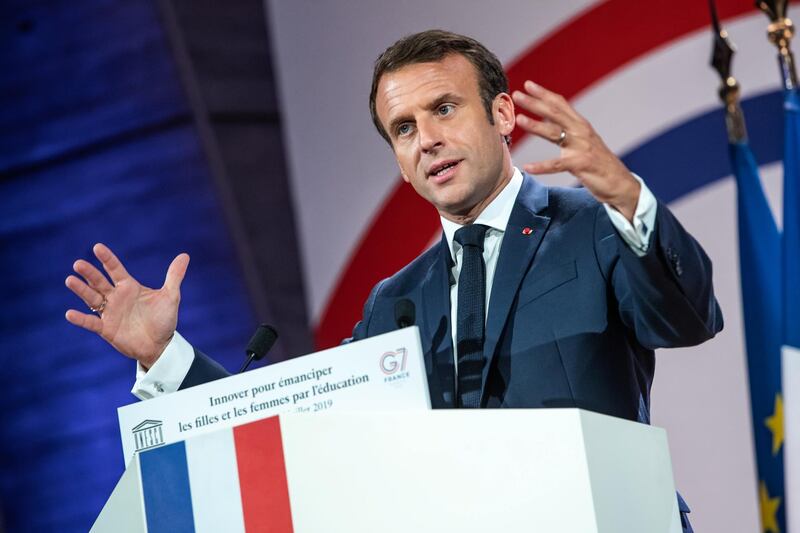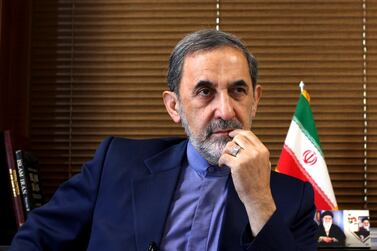France and Iran agreed to seek conditions by mid-July for the resumption of nuclear talks, presenting a potential diplomatic opening a day before it was due to announce an acceleration in enrichment activities restricted under the landmark 2015 deal.
In an hour-long telephone call with Iranian President Hassan Rouhani on Saturday night, French President Emmanuel Macron reinforced his concerns about the risks of a further weakening in the multiparty pact meant to prevent Iran from developing a nuclear weapon.
The Trump administration withdrew from the deal a year ago and reimposed sanctions on Iran’s economy and leaders, prompting it to scale back compliance and fuelling concerns that the region was sliding towards war.
“Beyond the announced July 7 deadline, the president has agreed with his Iranian counterpart to explore by July 15 the conditions for a resumption of dialogue between all parties,” a statement from Macron’s office read.
A week after it exceeded a cap on its stockpile of low-grade uranium, Iran is expected to resume purifying uranium to 5 per cent, beyond the 3.67 per cent allowed under the 2015 agreement but far short of the 90 per cent level needed to make a bomb.
The moves have created a challenge for European nations that helped negotiate the deal but are struggling to deliver the economic relief from American sanctions that Tehran had demanded by July 7. European leaders have signalled they won’t rush to reimpose sanctions, but they will find it increasingly hard to resist pressure from the Trump administration if Iran abandons multiple commitments.
European diplomats at the United Nations expressed concern that even though the US pulled out of the deal, it could turn to a key provision in Security Council Resolution 2231, which enshrined the nuclear deal and unwound sanctions on Iran, to force a process that could result in the so-called “snapback” of penalties. The provision allows for action against any party found not to be in compliance with the accord but its adoption by America would be certain to trigger legal wrangling with countries such as Russia, which would argue that the US lost the right to use it when it exited the deal.
Hours after Mr Rouhani reiterated his enrichment ultimatum, on July 3, US President Donald Trump tweeted it could “come back to bite you like nobody has been bitten before!”
At the G20 summit in Japan, Mr Macron expressed an unwillingness to ditch the deal that is widely felt in Europe. Ministers would meet to “assess” the situation, rather than immediately reimpose sanctions, he said. “What we’d want to do is restore trust between the different parties and to restore dialogue.”
In a July 1 statement, Iran said its nuclear steps could be reversed if sanctions were lifted and called on “Europe to pay its share in adhering to their commitments under the deal”.
The European troika has delivered Instex, a financial channel aimed at protecting some trade with Iran – most likely to be food and medicines – from the threat of US sanctions. Iran has warned the trade vehicle is insufficient unless it can be used to buy Iranian oil.
European officials say that oil purchases are a matter for the private sector.






